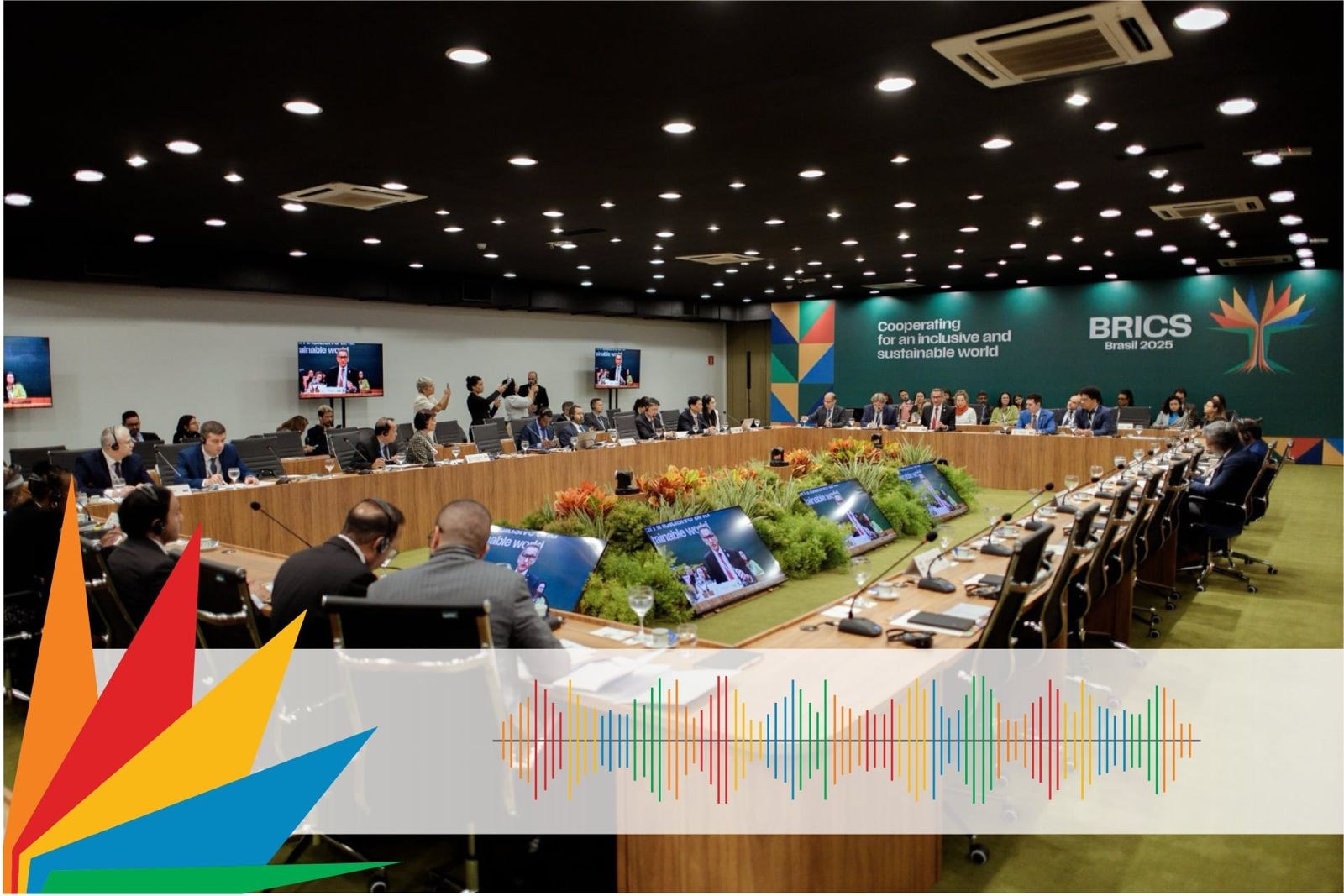BRICS Brasil Bulletin #06 - BRICS adopts joint declaration on disaster management, highlighting climate impacts and cooperation
Ministers emphasize solidarity, sustainable development, and joint actions in the 2025–2028 Work Plan. The group is now officially named BRICS Disaster Risk Reduction Group. Listen to the full report for more details. Listen to the report and find out more.

Report: Leandro Molina / leandro.molina@presidencia.gov.br
Voice-over: Rebeca Rodrigues
Reporter: Representatives from the 11 BRICS countries gathered in Brasília for the Ministerial Meeting on Disaster Management. During the meeting, the BRICS countries adopted a Joint Declaration, acknowledging that the increasing frequency and intensity of disasters, worsened by climate change, have caused negative socio-economic impacts such as rising poverty and setbacks in socially just development. The Minister of Integration and Regional Development, Waldez Góes, stressed the urgency of the environmental agenda and the need for cooperation among countries.
Waldez Góes: These impacts are even more acutely felt in our Global South countries. This is why BRICS cooperation is essential for strengthening multilateralism and fostering tangible solutions to our shared challenges.
Reporter: The Minister of Cities, Jader Filho, also highlighted the role of global partnerships in addressing climate-related risks.
Jader Filho: Our active participation in BRICS reflects our commitment to advancing public policies that strengthen resilient infrastructure and promote integrated actions to respond to disasters, consolidating our collective voice in the global agenda for resilience, social inclusion, and climate adaptation.
Reporter: The member countries also agreed to update the name of the group to better reflect its mission within the BRICS framework for multilateral cooperation. From now on, it will be called the BRICS Disaster Risk Reduction Group. South Africa’s Deputy Minister of Cooperative Governance and Traditional Affairs, Prince Zolile Burns-Ncamashe, highlighted the importance of solidarity and respect among nations. He emphasized the historic South-South partnership and called for responsibility in advancing global sustainable development.
Zolile Burns-Ncamashe: BRICS remains committed to solidarity, collectivism, and respect for multilateral institutions. If we continue to inspire other global bodies, we can contribute meaningfully to building a safe, peaceful, and disaster-resilient international order.
Reporter: During the meeting, the 2025–2028 Work Plan developed under Brasil’s leadership was officially presented and adopted unanimously by the member states. According to Wolnei Wolff, Brasil’s National Secretary for Civil Protection and Defense, the challenges faced by BRICS countries share similar characteristics, reinforcing the value of joint action.
Wolnei Wolff: There was a clear convergence of concerns and shared challenges, which not only highlights the value of South-South cooperation but also strengthens our belief that, with humility, mutual listening, and effective partnerships, we can reach solutions that generate real and lasting benefits for our populations.
Reporter: The meeting was led by Brasil’s Ministry of Integration and Regional Development (MIDR) and the Ministry of Cities, which work together to develop policies for urban adaptation and to strengthen local capacities in the face of climate change.